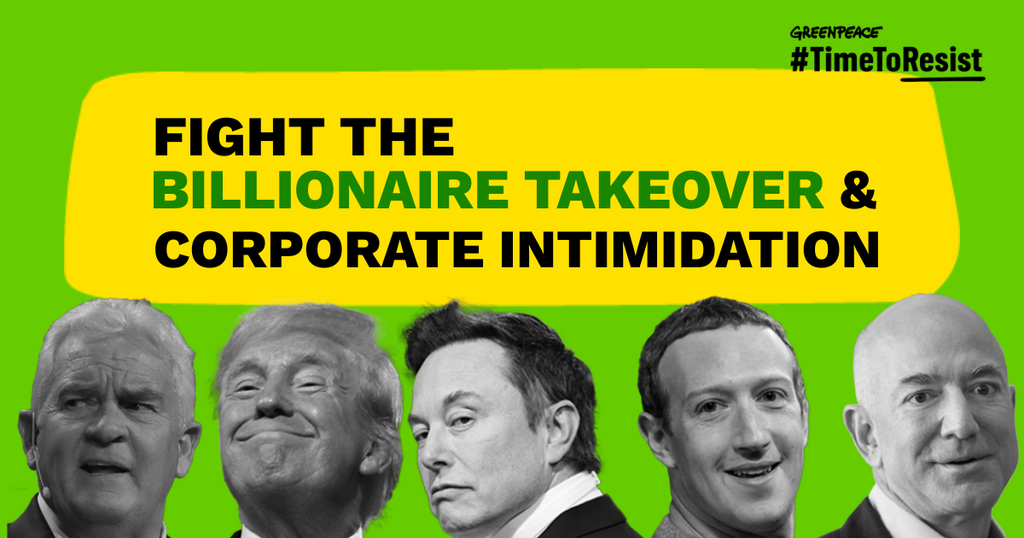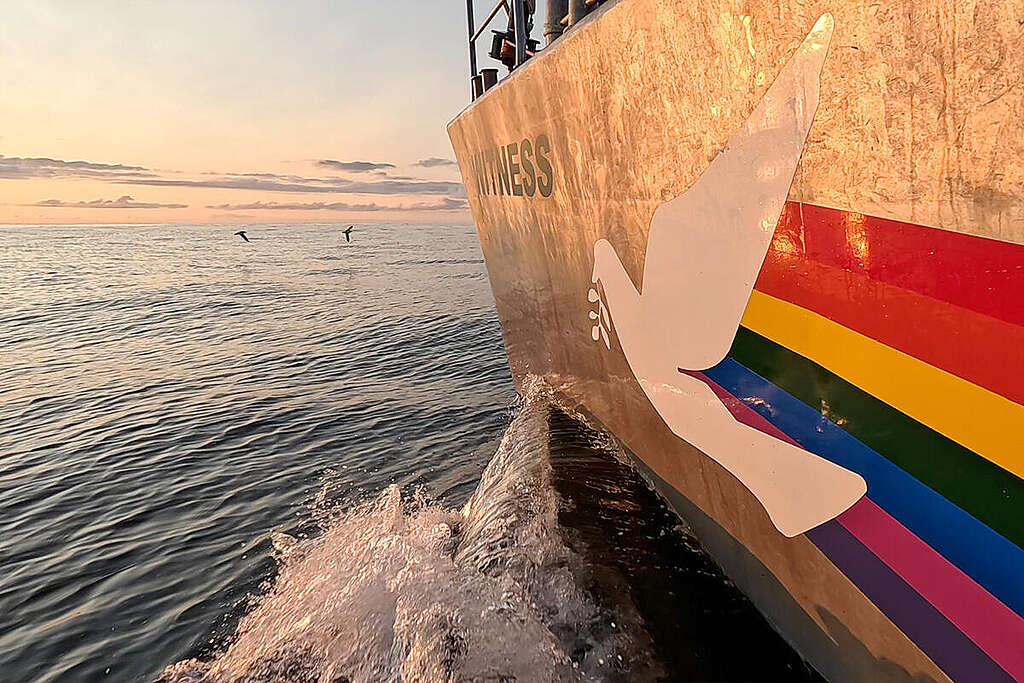
On August 6 and 9, 1945, two atomic bombs pulverised the cities of Hiroshima and Nagasaki, Japan. According to the International Committee of the Red Cross, the registers of both atomic bombings' victims exceed 540,000, including those who died after suffering from the long-term effects of radiation. This number continues to grow even now. Others survived, but at the cost of illness, trauma, social exclusion, or repeated miscarriages. Their memory, embodied by the hibakusha (the term used in Japan to designate the victims and survivors of these two tragedies), is today trampled by the logic of war that is regaining ground, including in so-called democratic states.
In 2024, the Nihon Hidankyo organisation, the historic voice of the hibakusha, received the Nobel Peace Prize. But at the same time, the world's nuclear arsenals continue to grow. In France, Emmanuel Macron recently declared that "to be free in this world, you must be feared," adding a whiff of legitimacy to a discourse of power based on threats and fear.
Gaza: the world on the brink of the abyss
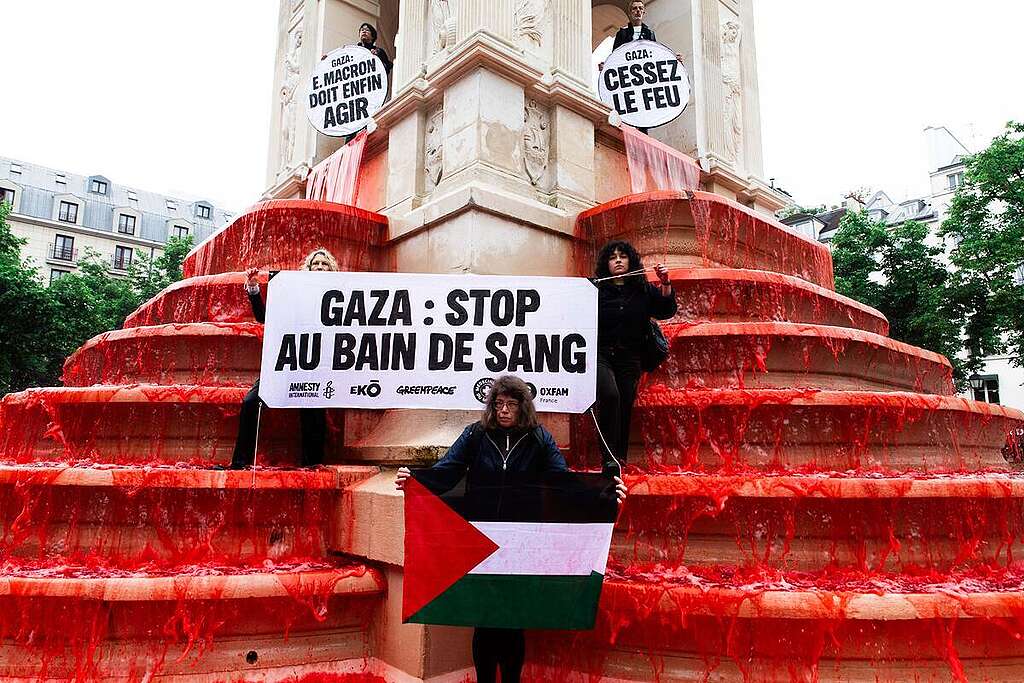
Today, entire populations are being buried beneath the bombs. In Gaza, Israeli military operations have wiped out families, destroyed hospitals and schools, and erased entire neighbourhoods from the map. Civilian infrastructure-hospitals, schools, shelters, and displaced persons' camps-has been systematically targeted, leaving no place safe. More than 60,000 people have been killed, according to the latest available figures.
With the Israeli government's ongoing blockade of humanitarian aid, the deliberate use of hunger as a weapon of war is taking a horrific toll. Survivors are being denied access to water, healthcare, and basic security, while famine tightens its grip.
A genocide is underway, according to independent experts, NGOs and several international institutions. A genocide marked by an explicit intention of annihilation and a denial of international humanitarian law. A genocide that also has dire consequences for ecosystems and violates the right of many people to enjoy and live in a healthy environment.
Elsewhere, and notably in Ukraine where Russia's full scale invasion of Ukraine continues to rage, geopolitical tensions are intensifying, fuelled by a logic of armed confrontation and the weaponisation of nuclear deterrence. The two nuclear submarines deployed by Donald Trump off the Russian coast on 1st August are further testimony that the taboo on the use of nuclear weapons is fracturing.
In light of this, the silence of nuclear powers and their refusal to question their own strategic doctrine is impossible to ignore. The normalisation of deterrence, the accumulation of weapons and the silence of the powerful are shaping a world that is increasingly unstable - and profoundly inhumane.
France's nuclear gamble: doubling down on 'deterrence'
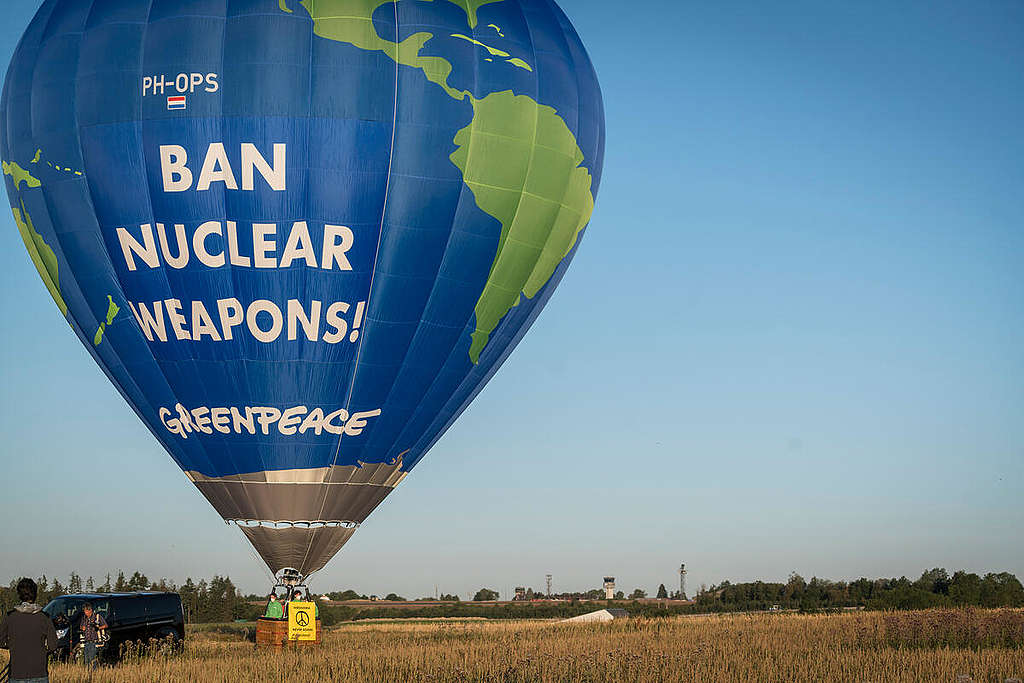
By refusing to sign the Treaty on the Prohibition of Nuclear Weapons (TPNW) - adopted by 122 countries and entered into force in 2021- France continues to maintain a system based on fear, domination, and threats. Worse still, the idea of Europeanising French deterrence is gaining ground, in an attempt to transform a national strategy into a common doctrine. A headlong rush that fuels a spiral of insecurity, where every move provokes a reaction, where nuclear proliferation is inevitable. A dangerous spiral, which weakens world peace.
Collective path to security
Contrary to this logic, a growing majority of states are choosing another path: that of multilateral disarmament, international law, and collective security. They too want to protect their "vital interests" which are constantly threatened by the potential consequences of deliberate, involuntary, accidental, or miscalculated use of nuclear weapons.
At the last meeting of the States Parties to the TPNW, they made it clear: deterrence does not protect, it exposes. In a statement delivered in plenary during the meeting, Greenpeace expressed its support for the Treaty, which made history by making it clear nuclear weapons are not only morally abhorrent, but also illegal under international law. Greenpeace affirmed its solidarity with victims of nuclear weapons use and testing, who have played a pivotal role in advocating for the Treaty-people whose lives have been irreversibly impacted and yet who have turned their tragedy into a struggle for the greater good.
Disarm violence, resist repression
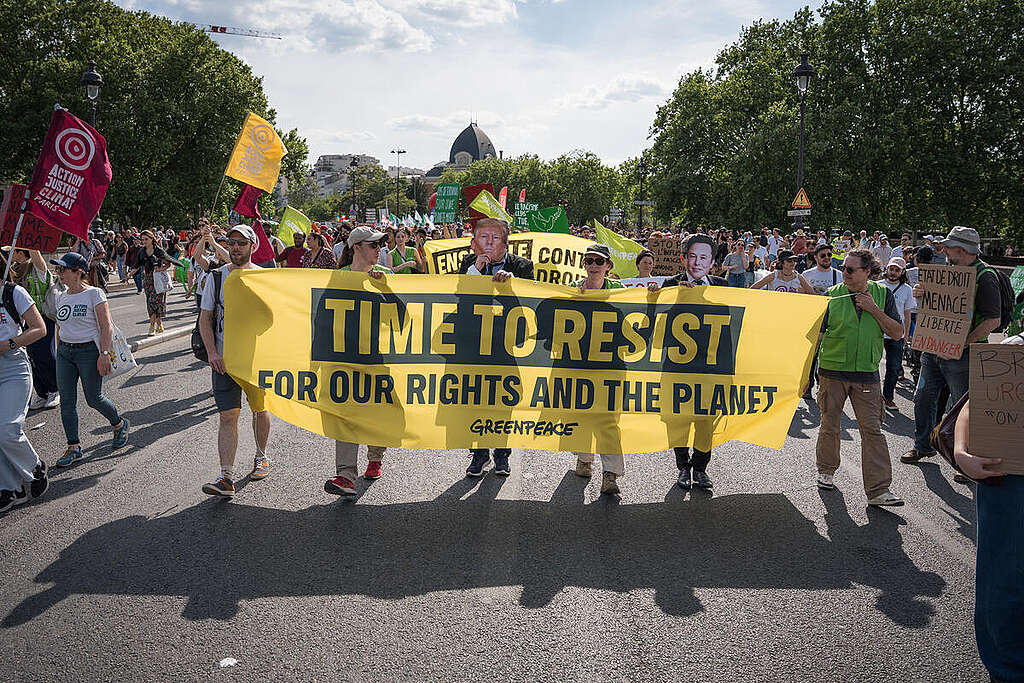
© Hélène Boissel-Arrieta / Greenpeace
The fight against nuclear weapons is inseparable from the fight against other forms of systemic violence: authoritarian regimes, the repression of citizen movements, and the hoarding of wealth by a powerful few. Today, as inequalities soar, a handful of billionaires amass disproportionate economic power while fundamental freedoms are eroded in many countries. Our collective security is being undermined by a toxic alliance between extreme wealth and ultra-conservative political forces.
This worrying groundswell affects many countries around the world, with governments prioritising military expansion and the deadly exploitation of fossil fuels over strengthening public services, developing renewable energy, and protecting us against climate change. Resisting this rampant militarism also means rejecting structural violence - and fighting for a more just world.
For peace, let us raise our voices
These commemorations of August 6 and 9, 1945, are an opportunity to raise our voices for peace. Greenpeace International has joined a global call to action led by the International Trade Union Confederation (ITUC), which closely links peace, democracy, and social justice. In the face of conflict, systemic oppression, and the repression of civil resistance movements in many countries, this appeal calls on governments and international institutions to defend fundamental rights as pillars of peace and to build common security based on democracy, multilateralism, and environmental sustainability, not military power.
Let us bring to life our vision of a world where peace is not maintained by fear, but built through a clear-sighted and determined commitment to a society free from threat and domination.
Take action to fight the billionaire takeover and corporate intimidation.
This story was originally published by Greenpeace France on 5 August 2025. It has been translated and adapted by Yousra Rebbani and Mehdi Leman, content editors for Greenpeace International based in Hungary and France.

